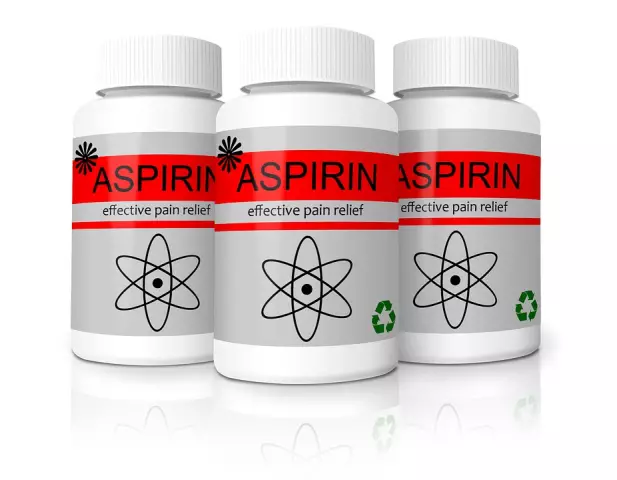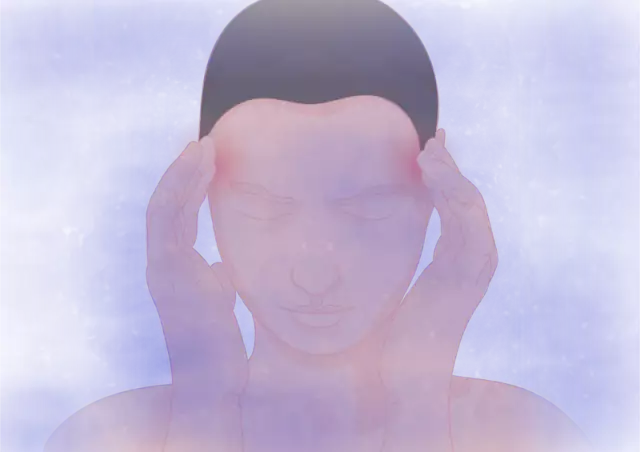- Author Rachel Wainwright wainwright@abchealthonline.com.
- Public 2023-12-15 07:39.
- Last modified 2025-11-02 20:14.
Headache tablets

You went to the pharmacy to choose a medicine for a headache. And there are so many of them on the window that your eyes run up. Which headache pills should you choose? And in general, why in one pharmacy they are sold as antipyretics, in others - as a remedy for headaches?
Groups of headache pills
Despite the large number of names of pills for headache, conditionally they can all be divided into three groups:
- Acetylsalicylic acid, also called aspirin. This name can also be found in combination preparations. For example, Asfen is a drug that contains aspirin and phenacetin.
- Butadione, analgin, amidopyrine. Butadion can only be purchased without a prescription as an ointment.
- Paracetamol and phenacetin.
Each of the above groups of headache pills has its own characteristics. Therefore, it would not be superfluous to consult with your doctor.
For example, acetylsalicylic acid is one of the most powerful pain relievers available without a prescription. Moreover, it is effective for any pain, but most of all for pain of an inflammatory nature (inflammation of the nerves, sprains, flux, etc.). Aspirin effectively relieves swelling caused by the inflammatory process. It helps well with pleurisy, pneumonia, sore throat, thrombophlebitis, acute respiratory diseases. However, it is better not to use aspirin as an antipyretic agent, as it causes profuse sweating, which is harmful. The patient needs fresh air to recover, and if he sweats, then the room cannot be ventilated.
Aspirin also has contraindications. For example, pregnant women should not take these headache pills. Pregnant women in the first trimester are generally contraindicated in any medications. These headache tablets are not recommended for children under 12 years of age. Aspirin is categorically contraindicated for people suffering from peptic ulcer of the duodenum and stomach, bronchial asthma, hyperacid gastritis and other ulcerative diseases of the intestine. Acetylsalicylic acid should be taken with caution for people with reduced blood clotting, impaired hearing and a tendency to allergic reactions.
Analgin and amidopyrine are the most versatile agents. They not only effectively relieve headaches, but also have antipyretic and anti-inflammatory effects. But these headache pills are not recommended for people with a low white blood cell (white blood cell) count. They are also not prescribed for renal and cardiac edema, since they have the ability to retain water in the body. They should be taken with caution by patients with bronchial asthma.
Paracetamol is mainly used not for headaches, but as an antipyretic agent that does not have a pronounced side effect. Often, paracetamol is included in the composition of tablets for headache for children, however, before using them, you must carefully read the instructions, and even better consult with your doctor. It is not recommended to take paracetamol for people with liver and kidney disease.
Why are combined headache pills made?

A natural question arises: why are there so many names for headache pills? Wouldn't it have been better to pick a few of the best and only release them? Unfortunately, it is impossible, because all these drugs do not repeat each other, but they perfectly complement.
So, for example, everyone knows the name of the headache tablets "Piranal", where the main active ingredients are amidopyrine and analgin. It would seem, why include two equally active substances in the composition of these tablets? It is not that simple. They are known to have different speed of action. Analgin begins to act quickly and stops its action just as quickly, while amidopyrine acts slowly but for a long time. Thus, by combining them, we get a drug that begins to act quickly and has a long lasting effect.
Therefore, by mixing two or more active ingredients, you can get a highly effective remedy for headaches.
What pills for headache to choose?
Before choosing a headache pill, there are many factors to take into account. For example, young and old people do not have the same drugs. Elderly people are better off choosing caffeine-free pills, while children and young people, on the contrary, will only benefit.
With cataracts of the upper respiratory tract, tonsillitis, flu and acute respiratory infections, Antigrippin is perfect. It contains acetylsalicylic acid, vitamin C, diphenhydramine, vitamin P.
If aspirin is contraindicated for you for any reason, pay attention to Pirafen (a combination of phenacetin and amidopyrine). Pirafen is well suited as a headache pill for children.
Today, a huge number of the latest drugs are produced that have a strong analgesic and anti-inflammatory effect. However, do not take them without first consulting a doctor. Especially it is not necessary to choose tablets for headache for pregnant women on their own.
It should be remembered that if it is possible to endure a headache without pills, then you should not take medication. And before using any new drug, you must consult your doctor. Only a doctor will be able to assess the benefits of certain headache pills for each person.
The information is generalized and provided for informational purposes only. At the first sign of illness, see your doctor. Self-medication is hazardous to health!






